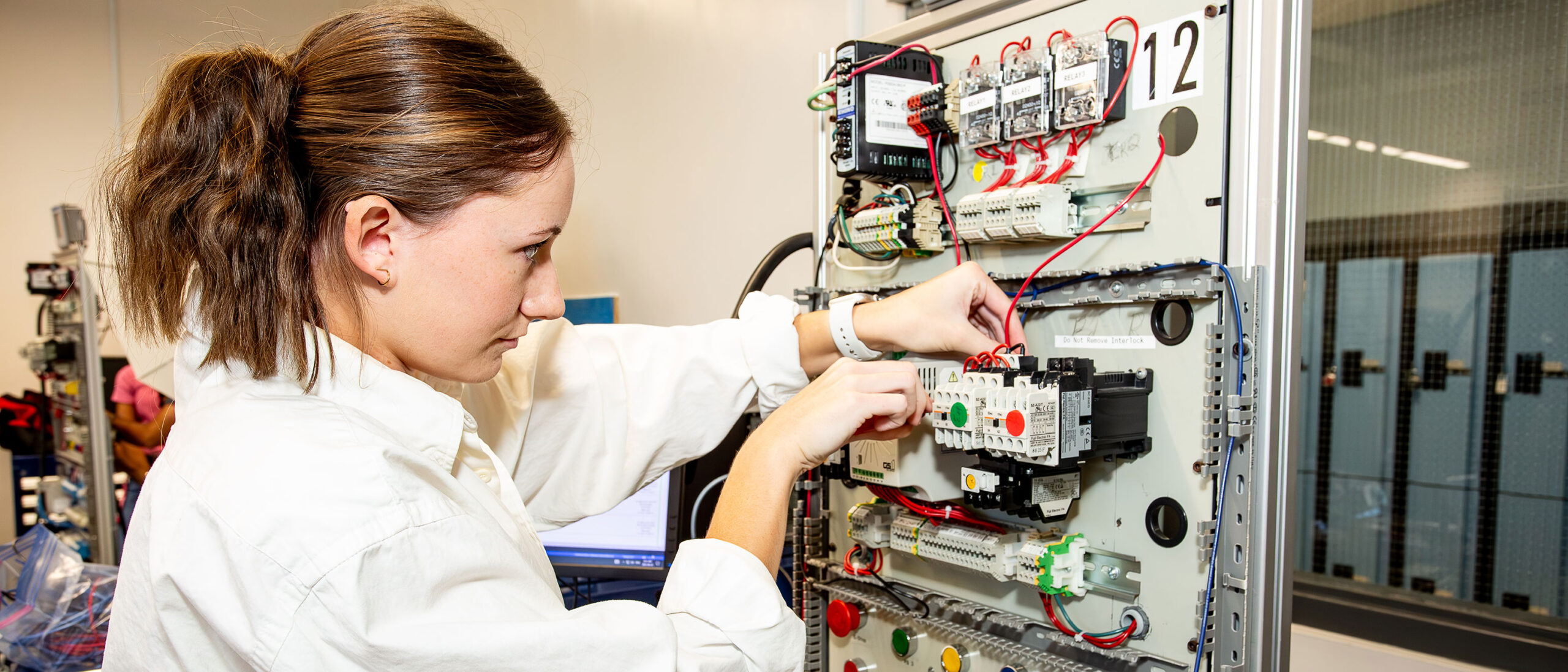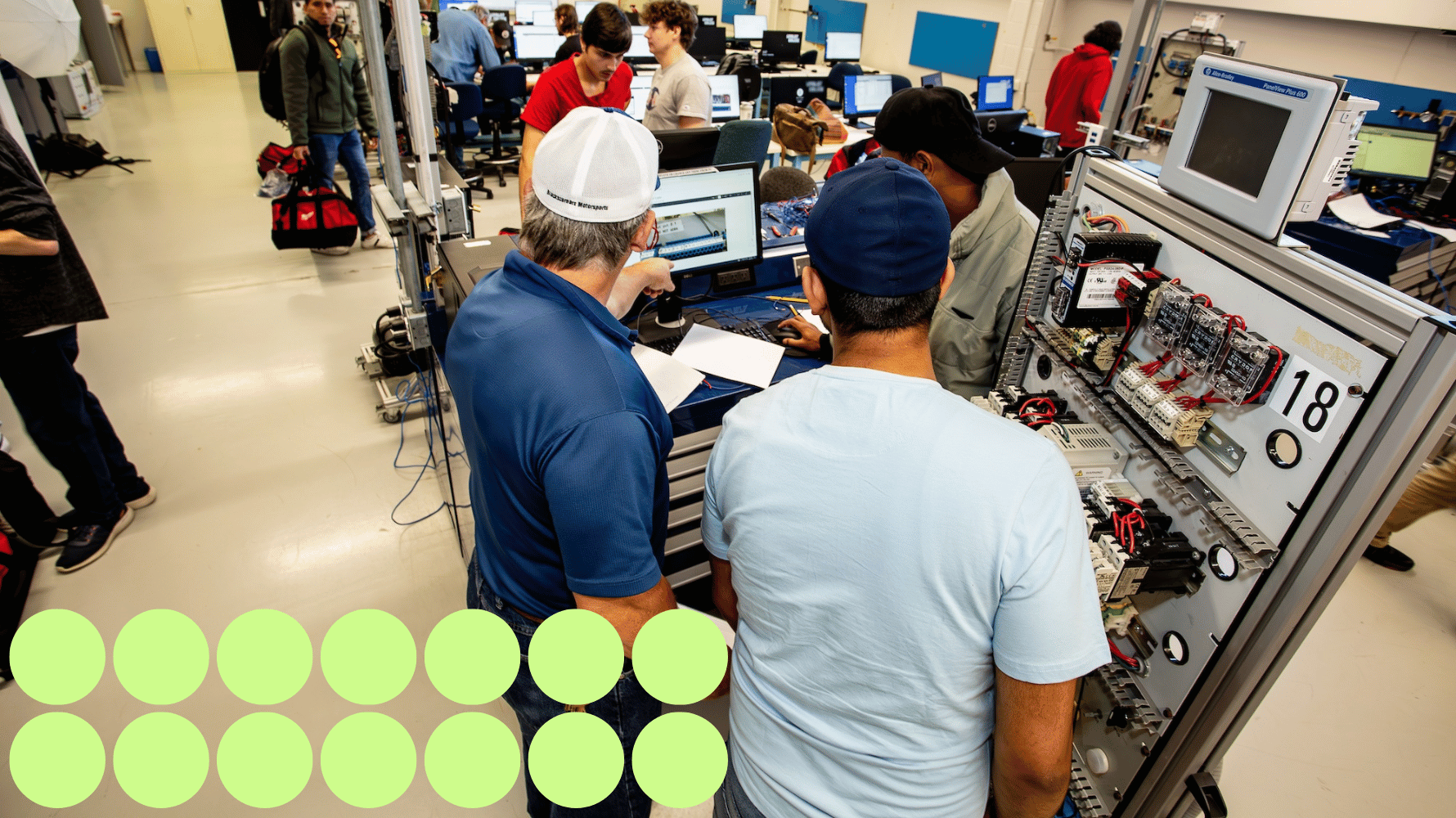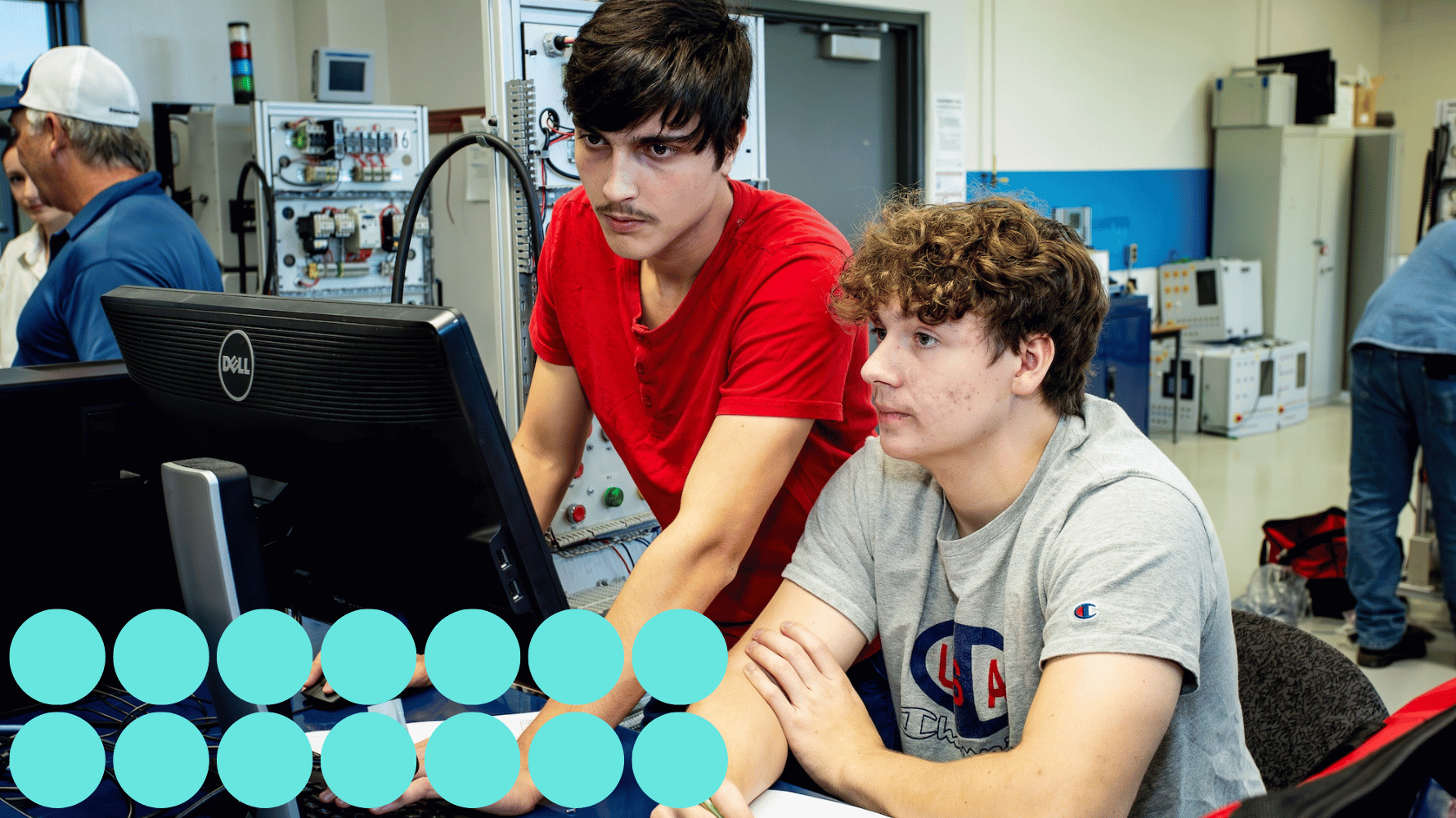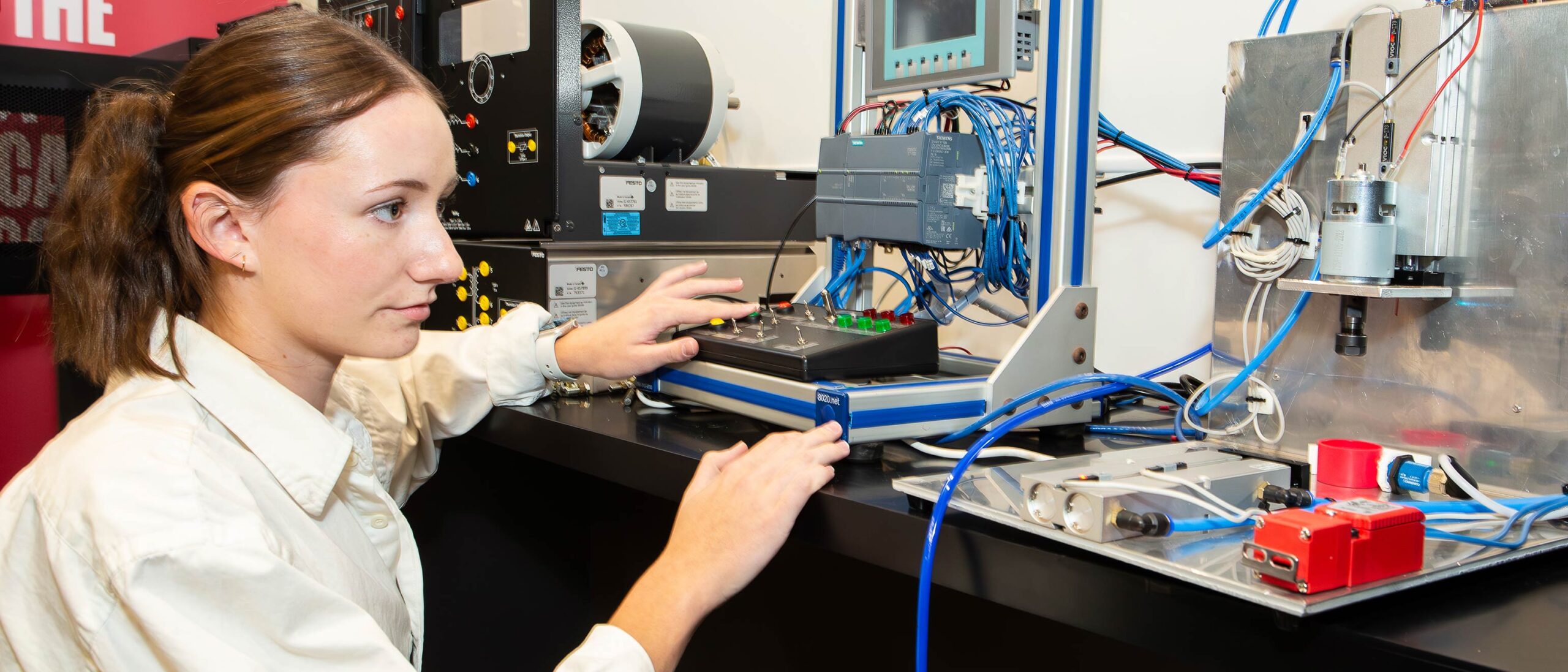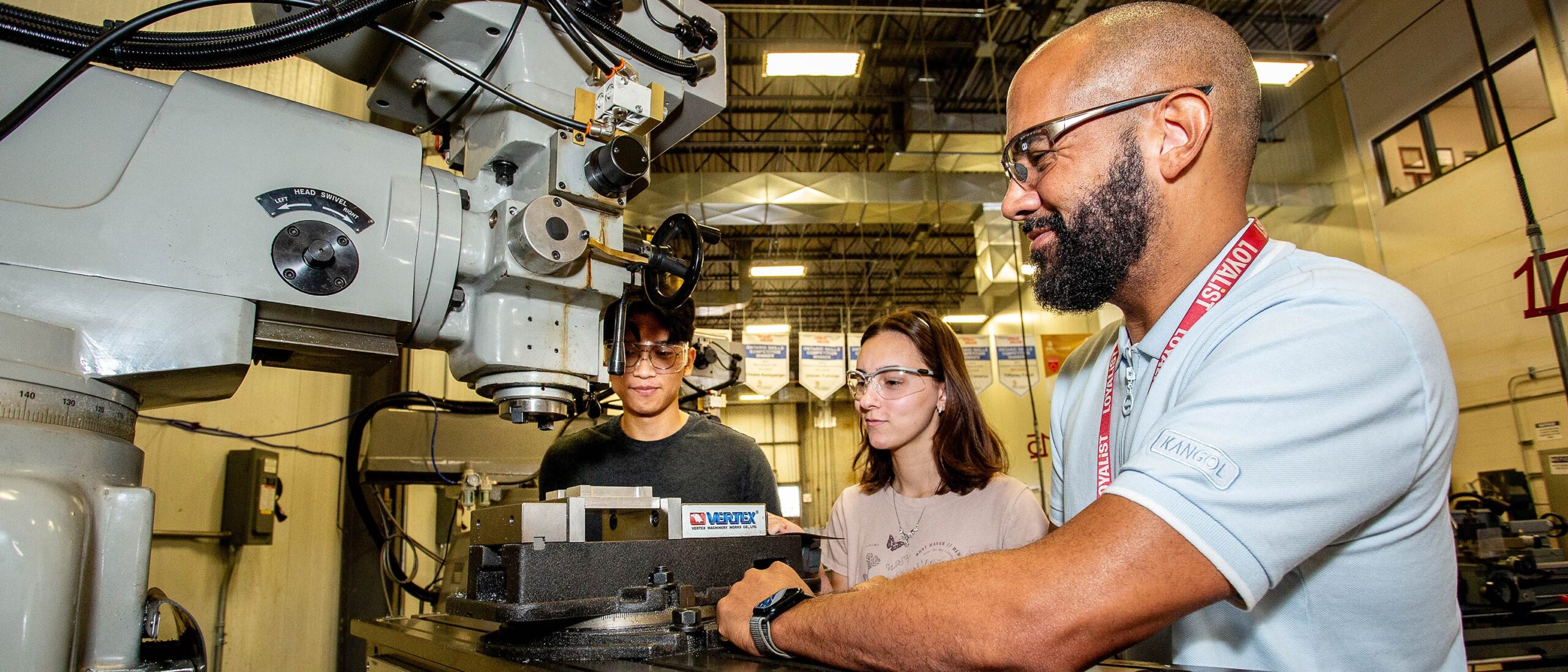Find your career
Loyalist’s focus on industrial automation provides the foundation for a vast array of career options:
- Industrial, construction/maintenance electrician
- Alternative energy technician
- Alarm systems technician
- Smart home technician
- Automation specialist
- Robotics technician
- Programmable logic controller programmer
- Appliance repair
- Heating, air conditioning and ventilation (HVAC)
- Electrical estimator
- Industrial networking specialist
- Electrical inspector
- Electrical systems and products trainer
- Communications systems technician
- Gaffer (movie/video production electrician)
- Railway signal technician
Our grads get great jobs
- Electrical Designer, Bombardier Inc.
- Millwright/Machine Maintenance, Horizon Plastics International Inc.
- Construction/Maintenance Electrician, Hydro One
- Electrical Apprentice, Quorum International
- Account Manager, Torbram Electric Supply
Is it for you?
Students who thrive in this program:
- Like taking things apart and knowing how they work.
- Enjoy hands-on learning by doing.
- Enjoy working with computers and new technology.

